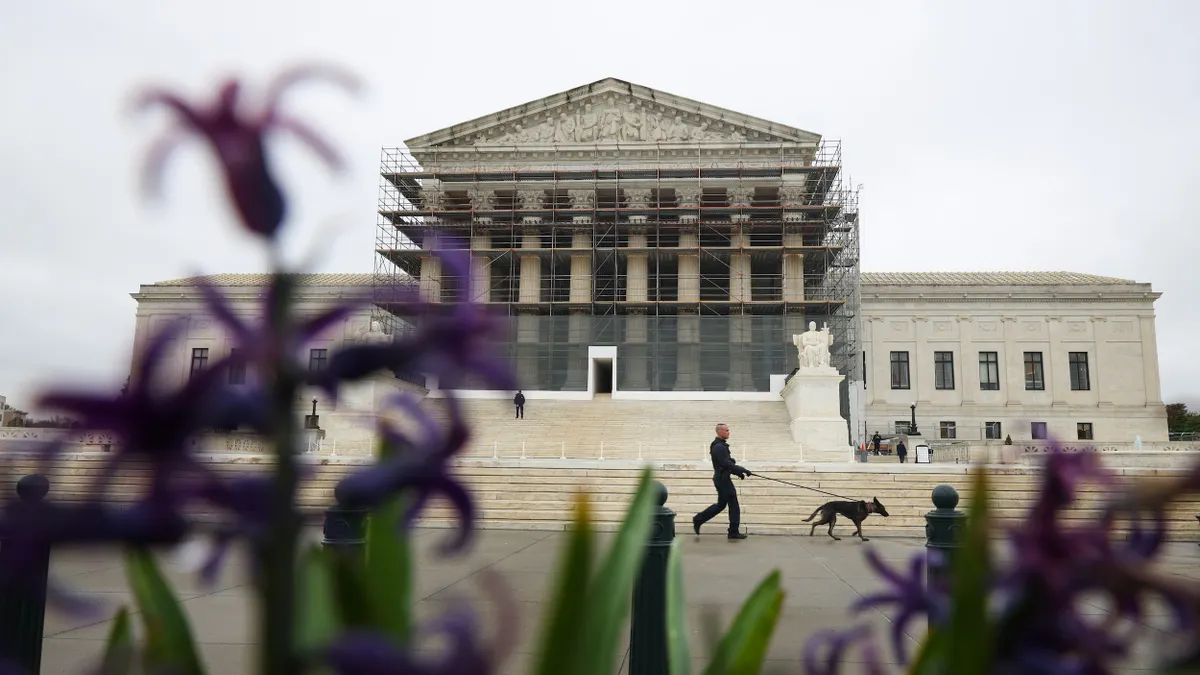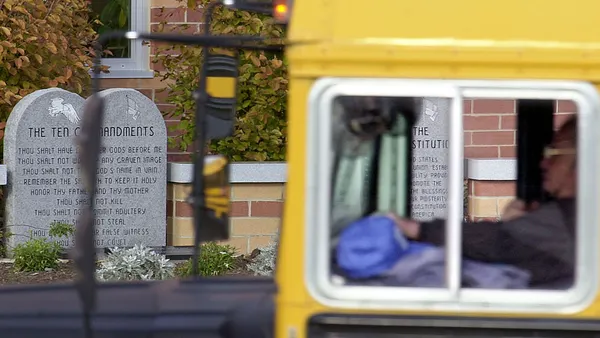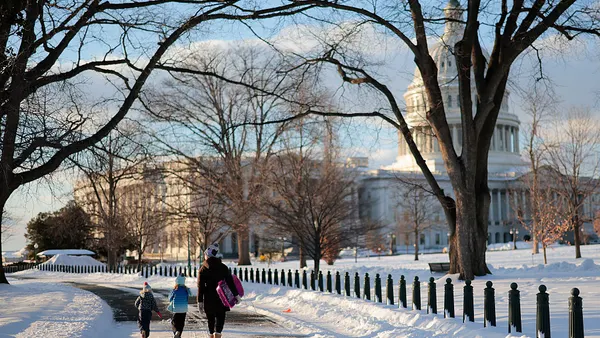Dive Brief:
- The U.S. Supreme Court on Monday refused to hear a case on whether a Christian school should be allowed to broadcast a pregame prayer over a football stadium’s loudspeaker before a championship game. The decision follows a slew of First Amendment decisions by the high court in recent years related to school prayer and speech.
- The denial in the decade-old case, Cambridge Christian School, Inc. v. Florida High School Athletic Association, keeps in place a lower court decision from last year that loudspeaker announcements at the game were government speech, since they were controlled by the Florida High School Athletic Association.
- It also preserves a ruling from 2000 in Santa Fe Independent School District v. Doe, which the justices would have had to reconsider had they accepted the appeal from Cambridge Christian School. In that case, the court held that student-led and student-initiated prayer at football games violated the First Amendment’s Establishment Clause.
Dive Insight:
The Cambridge Christian School sued the FHSAA after two Christian schools qualified in 2015 for a state championship football game organized by the FHSAA, a state actor that scripted and controlled loudspeaker announcements during the game.
Both schools requested use of the stadium loudspeaker so they could “communally participate in a brief, pregame prayer,” according to the petition for appeal filed by Cambridge Christian School with the Supreme Court in June.
“The sole reason for the denial was FHSAA’s conclusion that permitting loudspeaker prayer at a game between two Christian schools ‘can be viewed as endorsing or sponsoring religion’ and thus ‘establishing a religion,’” said the school in its petition.
The decision to not hear the case did not receive any dissents from the justices.
The refusal to hear the Cambridge Christian School case comes after the high court decided a case in 2022 allowing school staff to engage in prayer with students in some situations on the 50-yard line. In that case, justices found that Bremerton School District in Washington violated an employee’s First Amendment rights when it fired football coach Joseph Kennedy for praying on the 50-yard line after his team’s games, sometimes with students, the Supreme Court ruled in a 6-3 decision.
That case was decided broadly, meaning it had implications for school districts nationwide in how they managed their staff’s exercise of religious freedom.
The Supreme Court has also taken up a handful of additional First Amendment cases related to staff speech and religious freedom in recent years.
Similar to the Cambridge Christian School case that hinged partly on whether loudspeaker announcements were akin to government speech, two cases decided in 2024 questioned when a public official’s personal social media activity is considered government action. In those cases — one of which was related to school board members’ social media activity — justices ruled that public officials’ decision to block the public from their social media accounts violated the First Amendment only under some circumstances.















